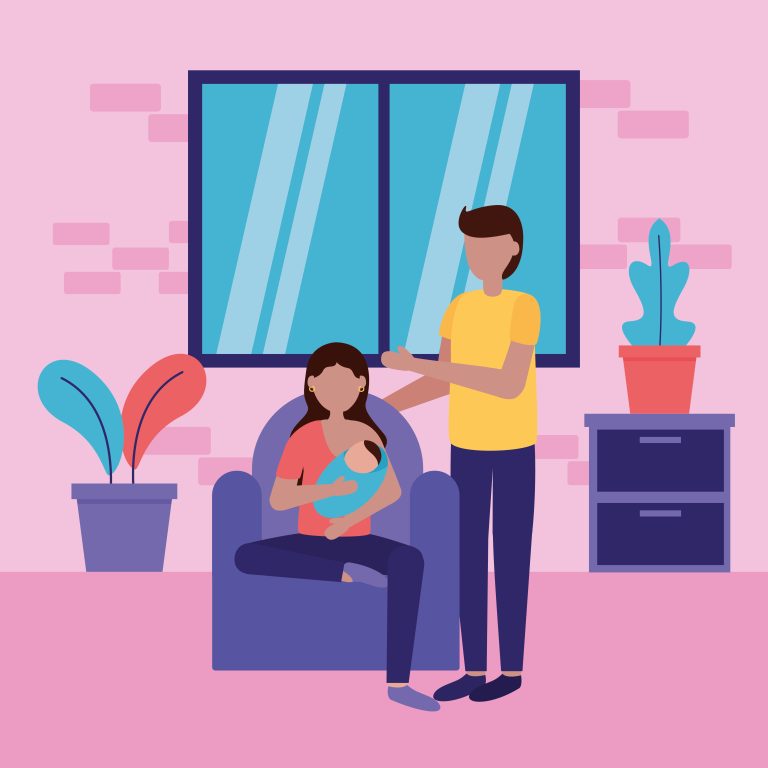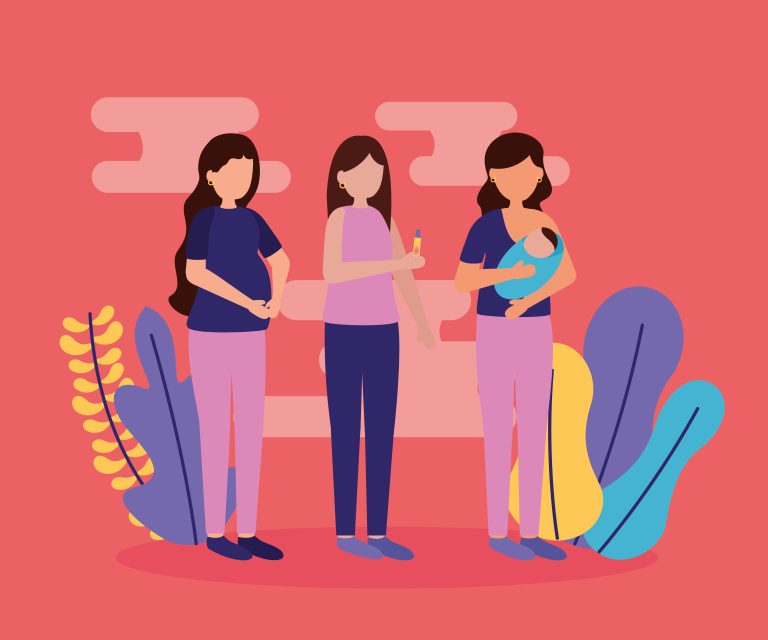After Birth Depression Counseling
After Birth Depression
Welcoming a new baby is often portrayed as a joyful time, but for many new mothers, it can also bring unexpected emotional challenges. At the Peacefulness Counseling Center, we offer a compassionate and supportive environment to help you navigate the complexities of after birth depression, also known as postpartum depression, so you can find healing, balance, and joy in your new role as a parent.

Understanding After Birth Depression
After birth depression, or postpartum depression, is a serious mental health condition that affects many women after childbirth. It goes beyond the “baby blues”—a common, short-lived period of mood swings, anxiety, and fatigue. Postpartum depression is more intense and lasts longer, often interfering with your ability to care for yourself and your baby. This condition can affect anyone, regardless of their history with mental health, and is influenced by a variety of factors, including hormonal changes, stress, and previous mental health issues. Understanding the signs and seeking help early is crucial for recovery and for ensuring the well-being of both mother and child.
Signs and Symptoms of After Birth Depression
After birth depression can manifest in various ways, affecting your emotional, physical, and psychological well-being. Common signs and symptoms include:
- Persistent sadness or low mood that doesn’t seem to improve.
- Feelings of hopelessness or being overwhelmed by the demands of motherhood.
- Difficulty bonding with your baby or feeling disconnected from your child.
- Intense irritability or anger that may feel out of control.
- Loss of interest in activities you once enjoyed.
- Fatigue or loss of energy beyond what is typical for new mothers.
- Changes in appetite—either eating too much or too little.
- Sleep disturbances, including insomnia or sleeping too much, unrelated to the baby’s sleep patterns.
- Feelings of guilt, shame, or inadequacy about your ability to care for your baby.
- Anxiety and panic attacks, often centered around your baby’s health or your ability to be a good mother.
- Difficulty concentrating or making decisions.
- Thoughts of harming yourself or your baby—if you experience these, seek help immediately.
- Physical symptoms such as headaches, stomachaches, or chronic pain without a clear cause.
These symptoms can emerge within the first few weeks after childbirth but may also develop months later. Postpartum depression can make it difficult to manage the responsibilities of motherhood and can strain your relationships and overall well-being.
Risk Factors and Causes of After Birth Depression
Understanding the potential risk factors and causes of postpartum depression can help in early detection and intervention:
- Hormonal changes after childbirth, leading to chemical imbalances in the brain.
- History of depression or other mental health disorders, particularly postpartum depression.
- Stressful life events, such as financial difficulties, relationship problems, or lack of support.
- Complications during childbirth or a traumatic birth experience.
- Challenges with breastfeeding or caring for a premature or sick baby.
- Sleep deprivation, which is common among new mothers, exacerbates emotional and physical exhaustion.
- Social isolation or feeling unsupported by your partner, family, or community.

How Counseling for After Birth Depression Can Help You
Counseling offers numerous benefits tailored to help you manage and overcome postpartum depression. We will assist you in:
- Understanding the causes and triggers of your depression, helping you make sense of your emotions.
- Developing coping strategies to manage stress, anxiety, and overwhelming feelings.
- Building a support system, including involving your partner and family in your recovery process.
- Enhancing your self-care practices, focusing on nutrition, sleep, and relaxation techniques.
- Addressing negative thought patterns and replacing them with more positive, realistic ones.
- Improving your emotional connection with your baby, fostering a healthy mother-child bond.
- Navigating the challenges of new motherhood with practical advice and emotional support.
- Exploring treatment options, such as therapy and, if necessary, discussing medication with your healthcare provider.
What to Expect in Our Sessions
Counseling for after birth depression is a collaborative process where you work closely with your counselor to explore your thoughts, feelings, and experiences. Our sessions will focus on understanding your specific symptoms and challenges, developing personalized coping strategies, and providing you with the emotional support needed to navigate this difficult time. Techniques may include cognitive-behavioral therapy (CBT) to address negative thought patterns, mindfulness practices to reduce stress and anxiety, and family therapy to involve your loved ones in your healing process. Together, we will work on building a path to recovery that honors your needs as a new mother.
Is Counseling for After Birth Depression Right for You?
If you’re experiencing symptoms of postpartum depression or struggling with the emotional challenges of new motherhood, our professional counseling services can help. Whether you’re dealing with persistent sadness, anxiety, or difficulty bonding with your baby, we’re here to support you in finding balance, joy, and well-being in your journey as a mother.
Ready to Take the First Step?
Don’t let after birth depression overshadow the joy of motherhood. Please book a counseling session with us today and start your journey toward healing and emotional well-being. Our compassionate counselors are here to guide you every step of the way.

 Getting an Appointment
Getting an Appointment You Can Contact Our Experts

